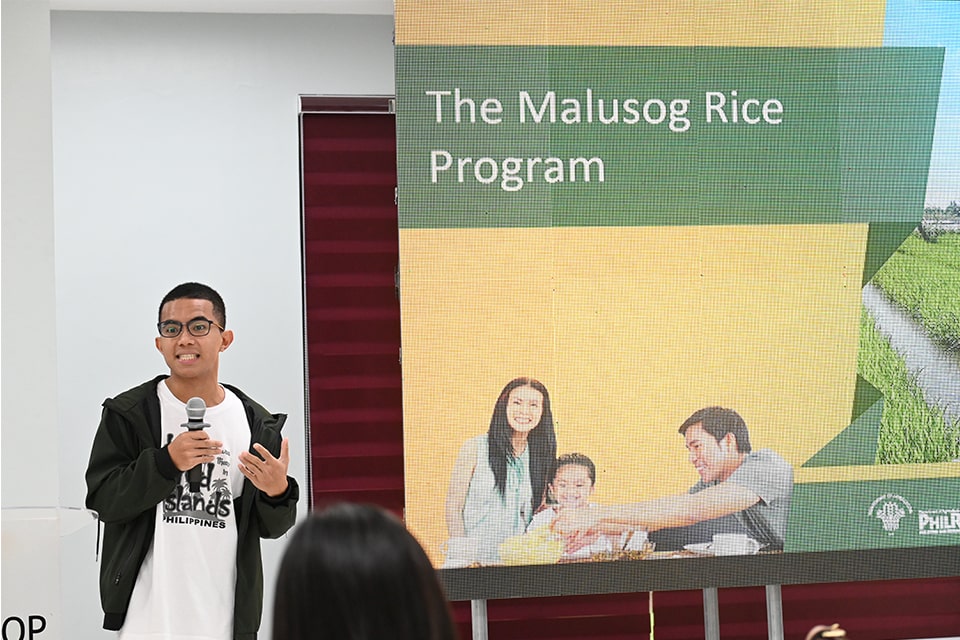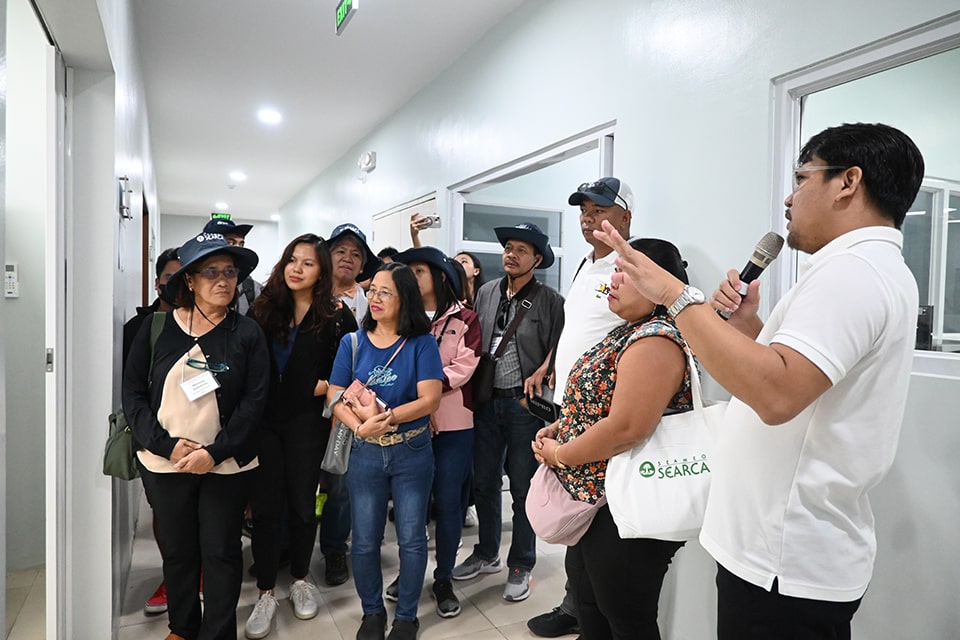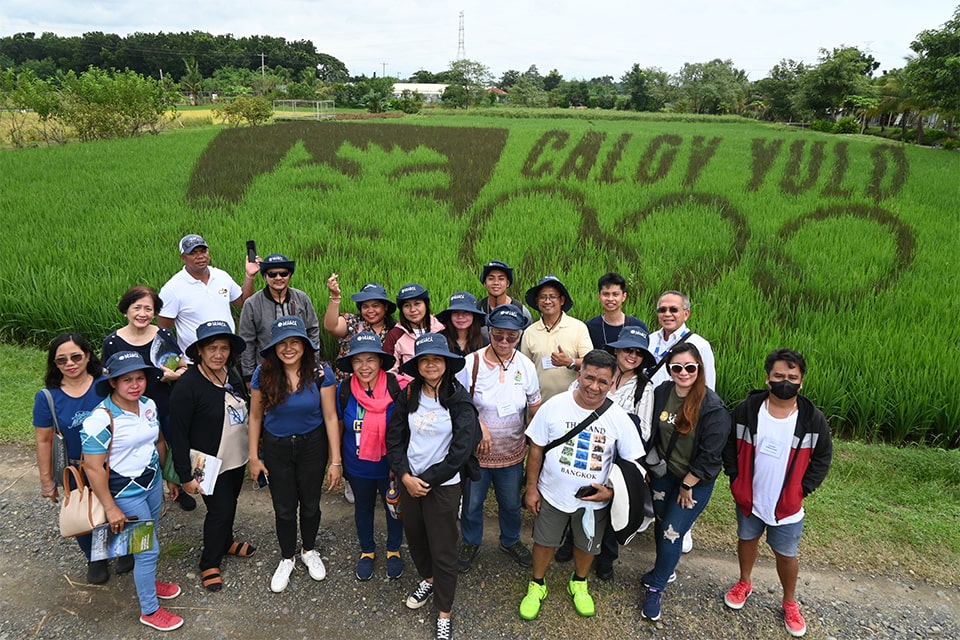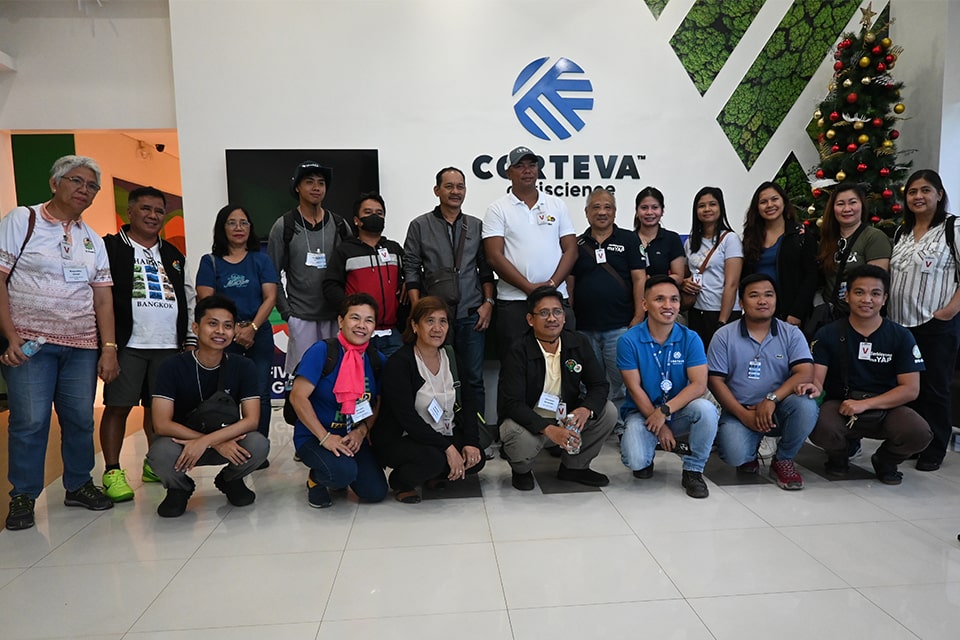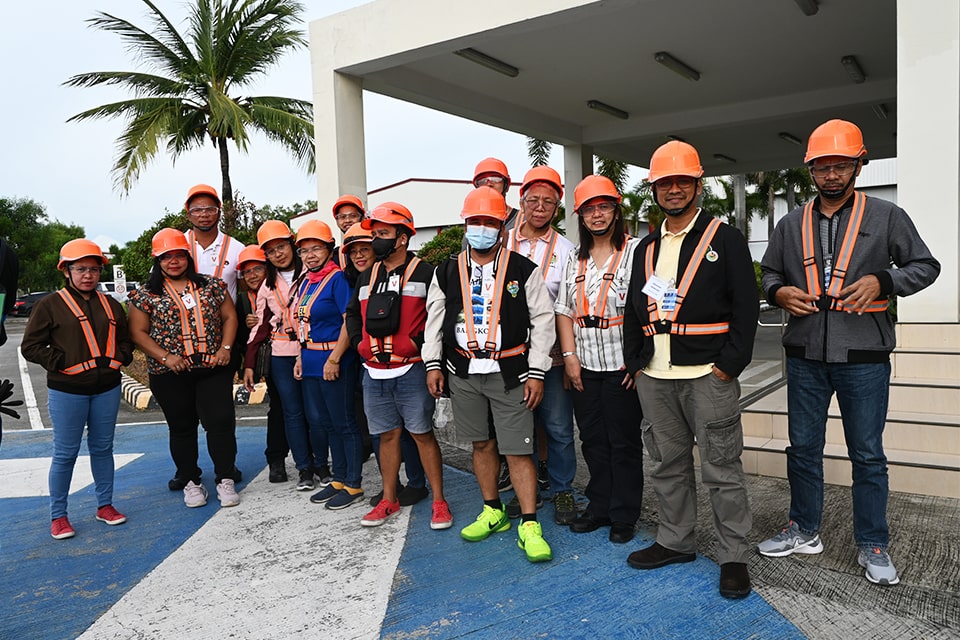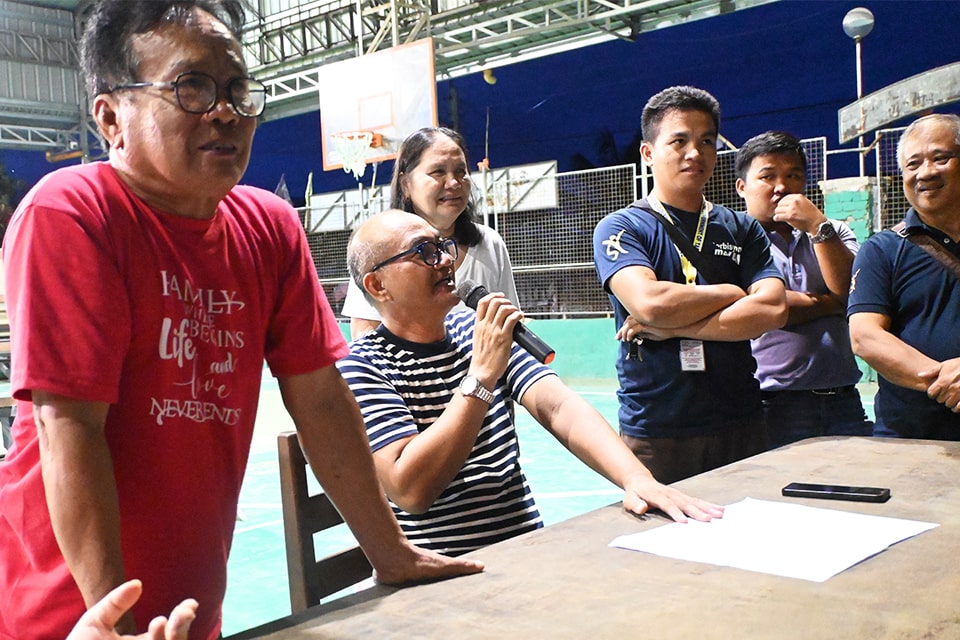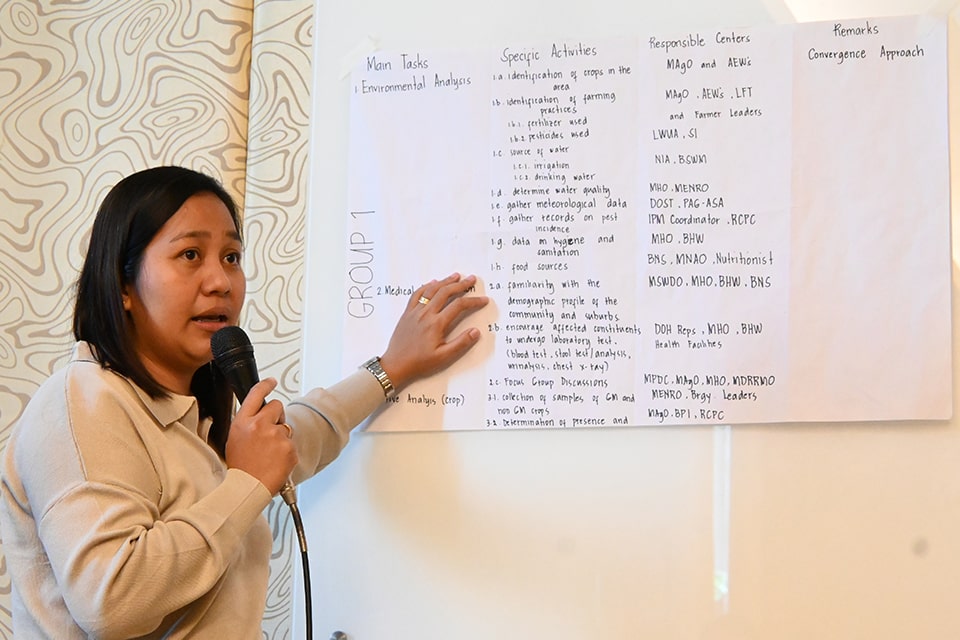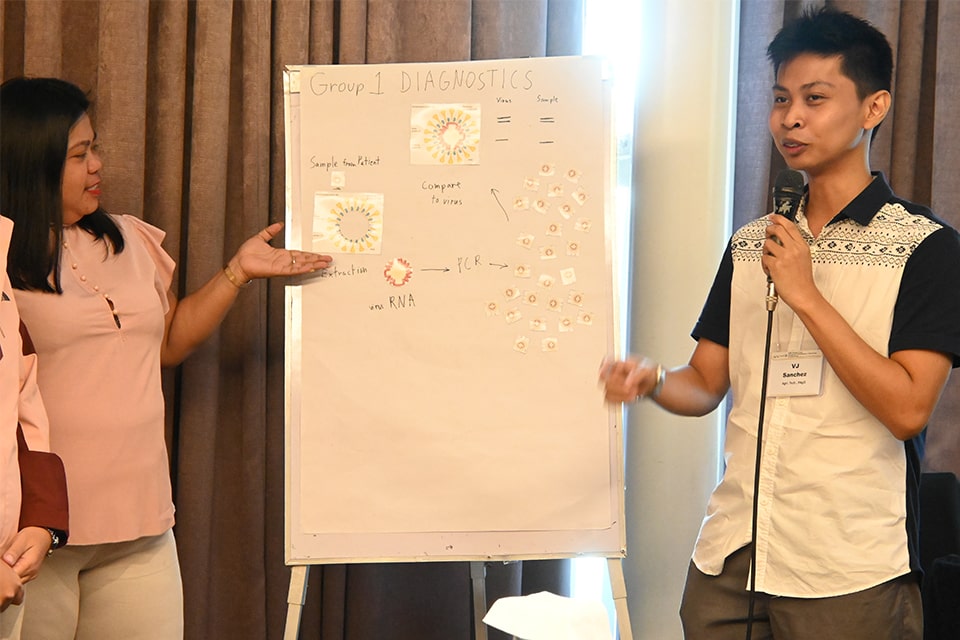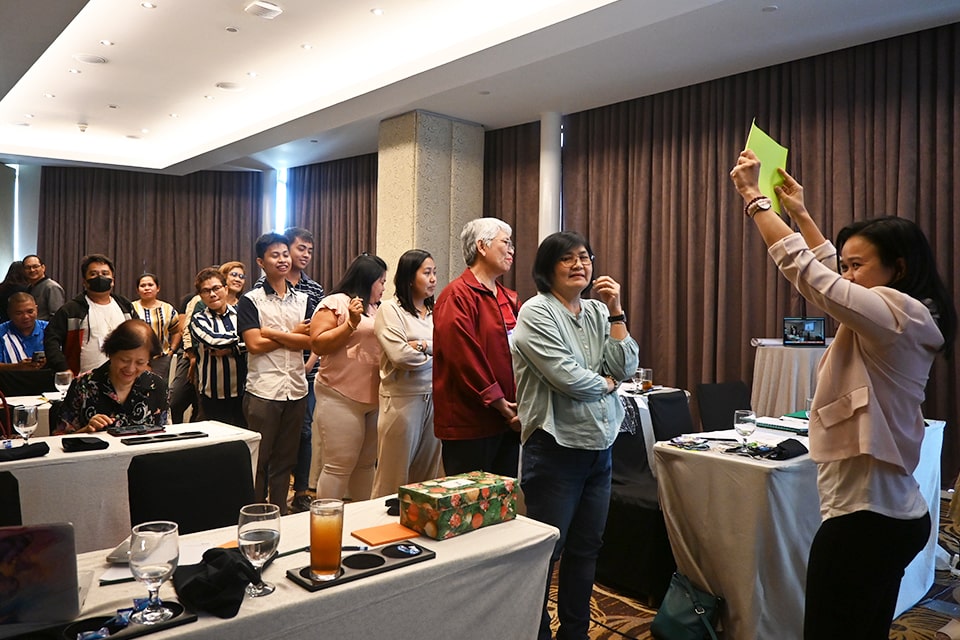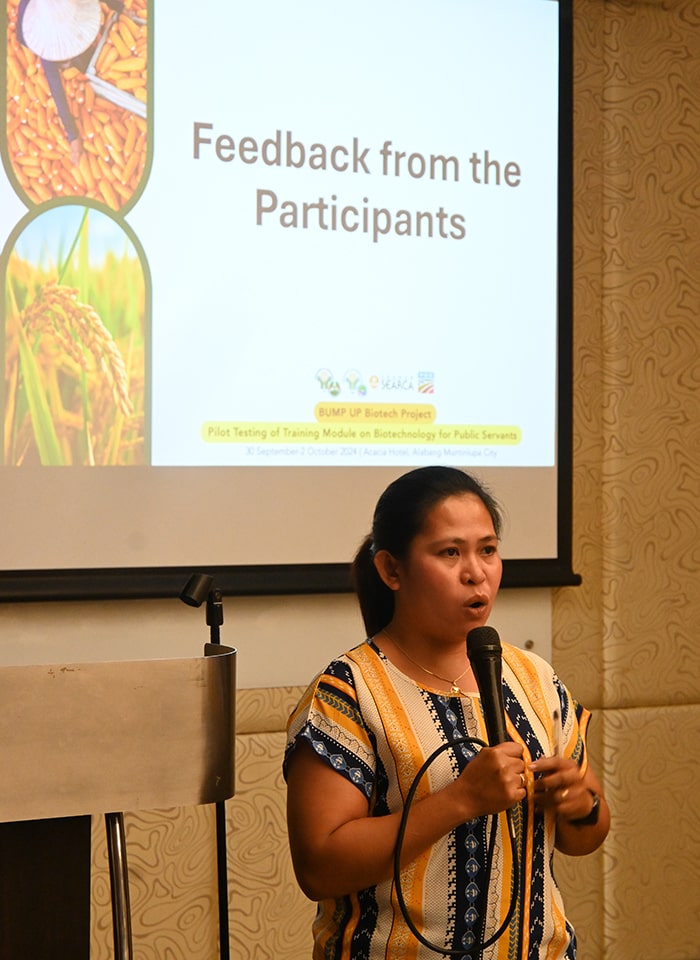Aiming to strengthen provincial governments and enhance their knowledge to more effectively promote the use and acceptance of modern biotechnology, the Southeast Asian Regional Center for Graduate Study and Research in Agriculture (SEARCA) held the Pilot Testing of Training Module on Biotechnology for Public Servants on 30 September to 2 October 2024 at Acacia Hotel, Alabang, Muntinlupa City.
Eighteen officials and staff of the provincial and municipal agriculture offices of Oriental Mindoro participated in the activity. The training module is an instructional tool and resource designed to equip public servants with the necessary skills and knowledge on biotech through self-paced or instructor-guided learning sessions and in a hybrid or blended learning setup. Baseline data collected through survey and interviews with key local government representatives in the province earlier this year was a basis in designing the training module. The module centers on four learning areas: (1) basics of biotech, (2) risk assessment and precautionary principle, (3) benefits and risks of biotech in human health and the environment, and (4) the status of biotech in the Philippines. Subject matter specialists developed the module lessons, with guidance from Dr. Elaine Llarena and Dr. Reianne Quilloy, assistant professors and project collaborators from the Department of Science Communication (DSC) at the University of the Philippines Los Baños-College of Development Communication (UPLB-CDC).
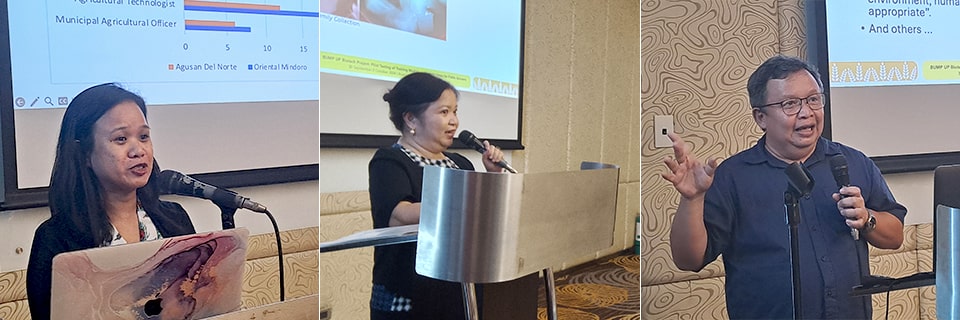 (from left) Dr. Reianne Quilloy discusses the baseline survey results while Dr. Maribel Zaporteza and Mr. Carlo Custodio, Jr. lead the discussions for Learning Areas 1 and 2, respectively.
(from left) Dr. Reianne Quilloy discusses the baseline survey results while Dr. Maribel Zaporteza and Mr. Carlo Custodio, Jr. lead the discussions for Learning Areas 1 and 2, respectively.
Dr. Paul Limson, Director of the Department of Agriculture-Biotechnology Program Office (DA-BPO), emphasized the "value of clear and effective communication, since public perception and the acceptance of biotech is significantly shaped by the information accessible to people." Dr. Limson adds that "equipping public servants with the tools and knowledge they need becomes even more crucial as they play a key role in demonstrating the impact and benefits of the technology to their communities."
Ms. Marcellas Antonia Barrogo, DA-BPO Senior Management Specialist, provided a comprehensive overview of the Philippine government's biotech program. On the other hand, Dr. Quilloy presented the baseline study results.
"The Basics of Biotech" was presented by Dr. Maribel Zaporteza, Assistant Professor of the Institute of Biological Sciences, UPLB College of Arts and Sciences. Dr. Zaporteza defined biotech, differentiating traditional and modern biotechnology products used in everyday life, the concept of genes, DNA, heredity, and the importance and basics of the Central Dogma of Molecular Biotechnology. Mr. Carlo Custodio, Jr., Philippine Country Coordinator of the Program for Biosafety Systems (PBS) discussed "Risk Assessment and Precautionary Principle." His session focused on identifying risks present in a situation, applications of the precautionary principle, and how this principle is interpreted in the Writ of Kalikasan of the Philippines.
The Lakbay Aral to PhilRice Center Experiment Station in Nueva Ecija, Corteva Agriscience Production Plant in Tarlac City, and a dialogue with farmers from the Ginintuang Butil Marketing Cooperative
Participants also had the opportunity to engage with scientists, technology developers, and farmers during the Lakbay Aral, allowing them to gain a deeper understanding of the process behind the development of biotech crops. The first stop was the Philippine Rice Research Institute (PhilRice) Central Experiment Station in Nueva Ecija. Participants learned about the Healthier Rice Project, including the beta carotene-enriched Malusog Rice (Golden Rice), the development of genetically modified organisms (GMOs), and policy brokering. The group also visited the Future Rice Farm and the laboratories at the Crop Biotechnology Center. The group also toured the Corteva Agriscience Production Plant in Tarlac City where Bt corn is being processed into animal feed. Corteva also produces hybrid corn and rice seeds and other crop protection products. They had a dialogue with the Tarlac Provincial Corn Coordinator, Mr. Joseph Gumallaoi, and the farmer-members of the Ginintuang Butil Marketing Cooperative, who shared their experiences in planting Bt corn, highlighting the collaboration between the provincial government and farmers.
Ms. Geronima P. Eusebio, Officer-in-Charge of the Biotechnology Office at the DA-Bureau of Plant Industry, discussed the role of local governments in regulating biotech crops in the Philippines including their involvement in the Institutional Biosafety Committee, facilitating municipal and city council resolutions, and ensuring public participation in field trials and public hearings.
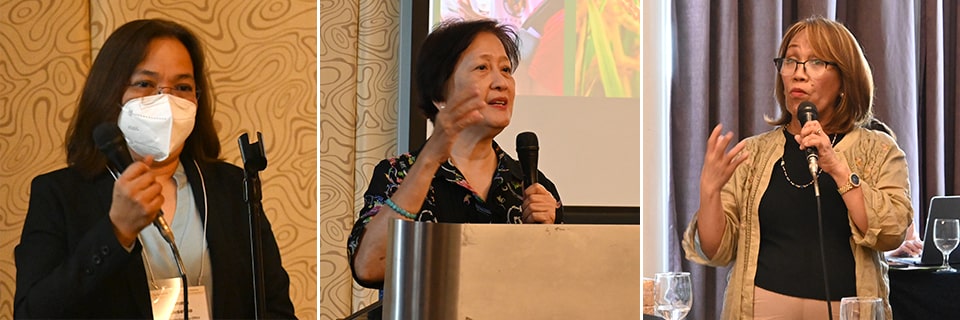 (from left) Ms. Geronima Eusebio gives an overview of the Philippines’ biosafety regulation, while Dr. Nina Gloriani and Dr. Ruby Cristobal lead the discussions for Learning Areas 3 and 4, respectively.
(from left) Ms. Geronima Eusebio gives an overview of the Philippines’ biosafety regulation, while Dr. Nina Gloriani and Dr. Ruby Cristobal lead the discussions for Learning Areas 3 and 4, respectively.
Dr. Nina Gloriani, former dean of the College of Public Health of UP Manila discussed the benefits and risks of biotech in human health and the environment. Dr. Gloriani, who is also a former director of the
Southeast Asian Ministers of Education Organization - Tropical Medicine and Public Health Network (i.e., SEAMEO-TROPMED) Regional Center for Public Health, Hospital Administration, Environmental and Occupational Health, delved on the beneficial applications and biotech in medicine and human health, examples of biotech products for improving health, and the potential health risks from GMOs, such as toxins/anti- nutrients, allergens, and antibiotic resistance genes.
Dr. Ruby Cristobal, Senior Lecturer of DSC, UPLB-CDC, discussed the status of biotech in the Philippines. The discussion served as an integration of the earlier lessons to help participants deepen their appreciation of how biotechnology is being used in different sectors to benefit society and how vital their role is as public servants in implementing biosafety policies and in linking policy and practical solutions.
The activities in each learning area keep the provincial and municipal agriculture officers of Oriental Mindoro actively engaged throughout the training.
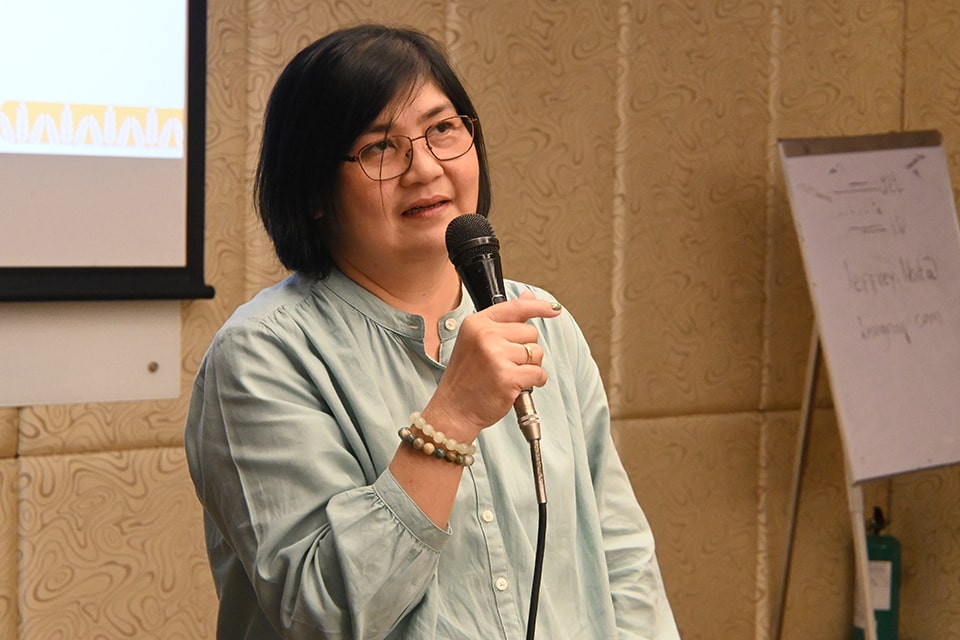 Ms. Christine Pine gives her closing message.
Ms. Christine Pine gives her closing message.
Ms. Christine Pine, Provincial Agriculturist of Oriental Mindoro, encouraged the participants to continue engaging in discussions on how they can support their constituents, especially farmers, in gaining a better appreciation and understanding of biotechnology. She also emphasized the importance of providing opportunities for them to participate in biotech initiatives, such as training programs and benchmarking activities.
The activity was conducted as part of the Bridging and Upgrading the Mechanisms and Pathways for the Uptake of Biotech (BUMP UP Biotech) Project, an Information Education Communication (IEC) project funded by the Bureau of Agricultural Research through DA-BPO. It was co-organized with the UPLB-CDC DSC and the PBS.
